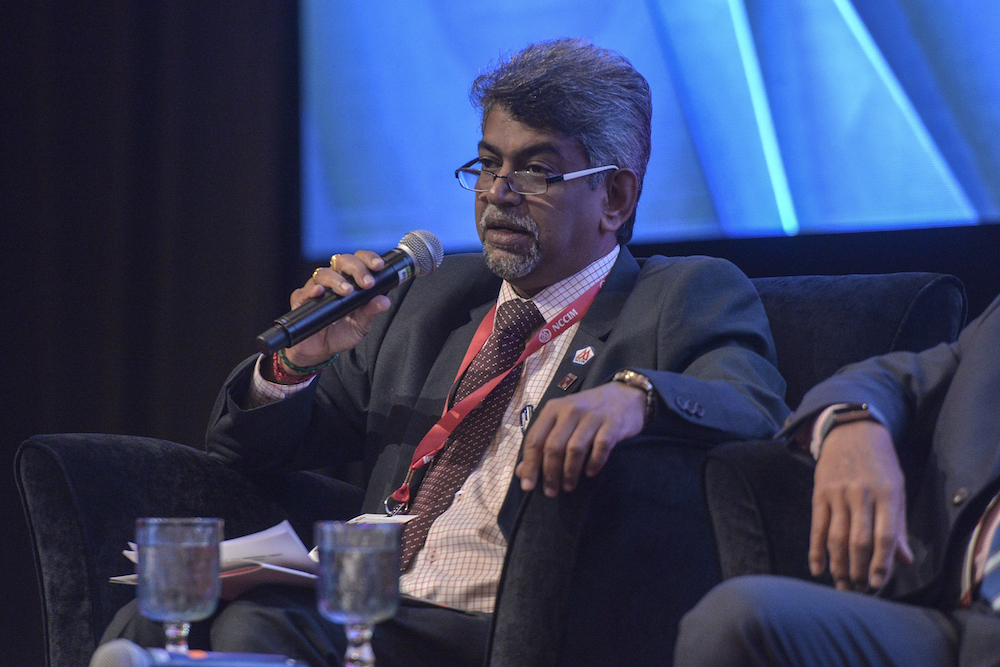KUALA LUMPUR, Aug 29 — Malaysia is less a capitalist economy today and closer to the models used by communistic regimes due to the large number of government-linked companies (GLC) in business, the president of the Malaysian International Chamber of Commerce and Industry (MICCI) said today.
Datuk Tan Cheng Kiat urged the Pakatan Harapan (PH) government to limit the involvement of GLCs to become essential infrastructure providers for the country’s benefit.
“GLCs are definitely in too many areas. When GLCs own more than 40 to 50 per cent of the economy it is communistic already, we are no longer capitalistic,” he said in a discussion at the National Economic Forum 2019 here attended by 600 people.
Tan suggested limiting GLC involvement to 30 per cent to encourage participation and competition from fully-private businesses.
“Some of these GLCs are set up to benefit the politicians behind them. We have to put a stop to this and focus on essential infrastructure and other things that can benefit the whole country,” he added.
The MICCI president reminded the new government that part of the reason the Barisan Nasional coalition lost in the last elections despite being in power for six decades was because of endemic cronyism and corruption, which he said contributed to higher living costs.

Tan is not the first to speak up about the dangers of too-powerful GLCs. Universiti Malaya’s professor of political economy Edmund Terence Gomez previously criticised them as a vehicle for political patronage.
But Tan also pointed out that race and religion has been increasingly underscoring national policies and urged the government to practise meritocracy in business and economic matters.
“Affirmative action is based on race and religion. Quotas that are set based on race and religion must go away, instead it must be on a needs basis. We are only one citizen: the Malaysian citizen. We are only one race: the human race.
“So any decision must be on meritocracy and the eradication of poverty must be on needs base,” said Tan, adding that “little Napoleons” in the civil service is also detrimental to the businesses.

His sentiments were echoed by fellow panellist the Malaysian Associated Indian Chambers of Commerce president Datuk N. Gobalakrishnan who pointed out that even in New Malaysia, who-you-know is more important than what-you-know.
He said it was “very frustrating” to see certain individuals or race getting special privileged treatment simply because they know a certain politician or bureaucrat leading to a playing field that is not levelled.
“You can see different people getting different treatment. Some face delays while another get better treatment and it’s even race-based in some situations. Is this New Malaysia? Where know-who is still relevant?
“It’s quite impossible for some to get the same (special) treatment. That special treatment is given to a person or race. It’s difficult and frustrating to business people. I hope this can be addressed,” said Gobalakrishnan.




















